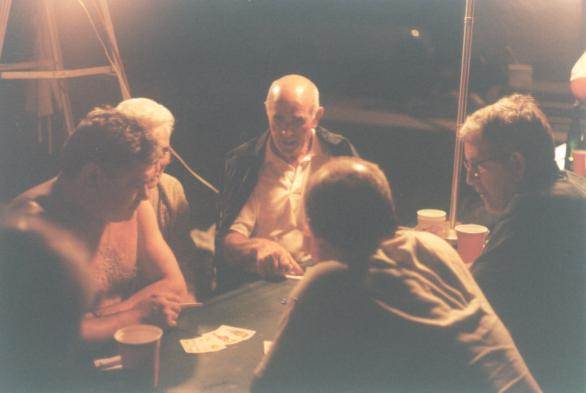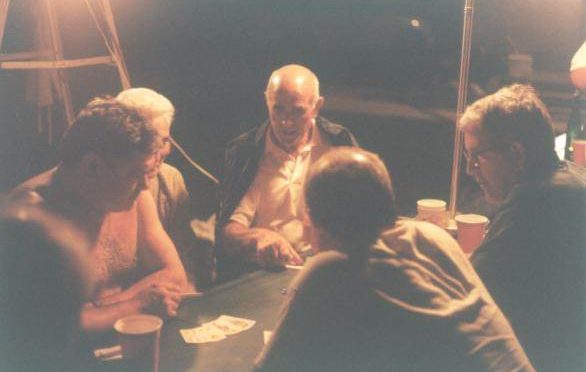A famous saying goes “One Basque, a beret; two Basques, a ball game; three Basques, a choir; four Basques, a challenge to mus.” Such is the importance of the card game mus to Basque culture. All across the world, whenever a group of Basques get together, a game of mus is likely to follow.

- It is widely accepted that mus is truly Basque in origin. The first mention of mus is in Father Larramendi’s Corografía de Guipúzcoa, written in 1754. Larramendi wrote that the game is as old as cards themselves. Since, in 1334 in Vitoria, there is documentation of statutes that prohibited Knights of the Order of the Band from playing cards (possibly the first mention of playing cards in Europe), there is a large gap in time during which the game could have been first invented.
- There is one line of thought that suggests a non-Basque origin of the game. Dr. Hugo Schuchardt claimed to have found that a game with the same rules was played in Austria, where it was called “mousse” (cabin boy). He speculated that it could be some card game that passed among sailors, and that the Basques adopted it on their maritime adventures. Of course, the true origins are now lost to time.
- The name mus is thought to derive from the extensive facial expressions that partners use to communicate what cards they have in their hand. While today, the Basque word musu is most often translated as kiss, it can also mean face or lips. The word mus is thought to come directly from musu, from all of those facial expressions. However, another theory relates it to the Latin musso, meaning to “keep silent,” possibly in contrast to the opening of the game when players “talk.”
- The rules of mus were first written down by J. Ortiz de Zárate in Pamplona in 1804. You can find the basic rules at various places on the internet, but there are multiple variants of the game. Larramendi differentiated between muszarra and musberri (old mus and new mus). Muszarra is played with eight kings and eight aces while musberri uses only four kings and four aces. Further, while the most common version is played between two teams of two, there are variants in which up to eight can play (played in France) or even just two individuals.
- Today, there is a World Championship of Mus, which started in 1978. Teams from Basque clubs from all over the world compete to be crowned world champion. The last tournament, played in 2019 in Baiona, was won by a team from Canada: Frank Altuna and Rufino Iribarren.
- If you want to learn to play mus, you can play online at Ludoteka.com or on your phone with the UsuMus app. If you know of other places to play digitally, leave a comment!
Primary sources: Auñamendi Entziklopedia. MUS. Enciclopedia Auñamendi, 2021. Available at: http://aunamendi.eusko-ikaskuntza.eus/es/mus/ar-83434/; Mus, Wikipedia
Discover more from Buber's Basque Page
Subscribe to get the latest posts sent to your email.


